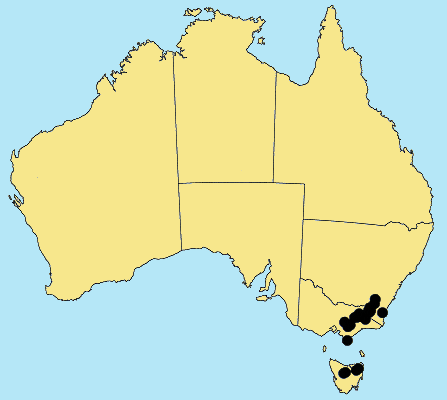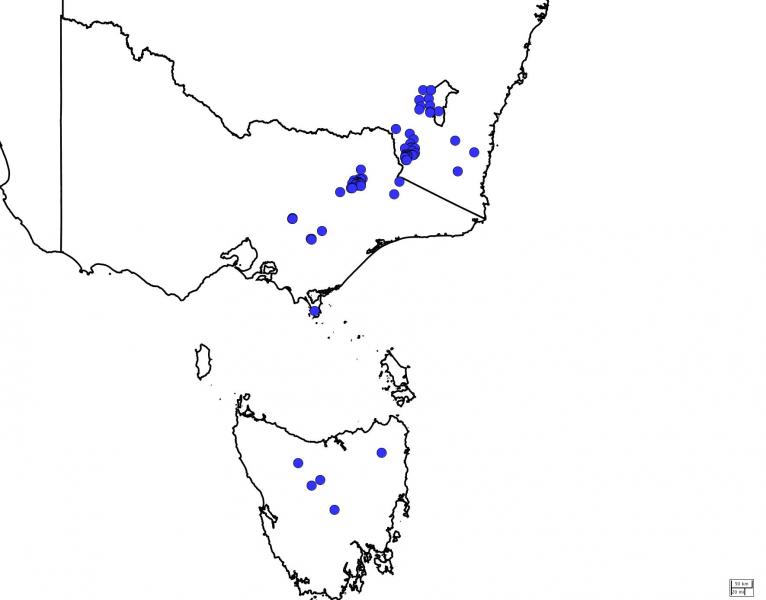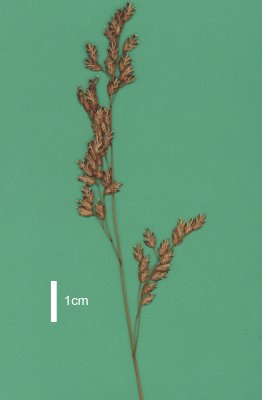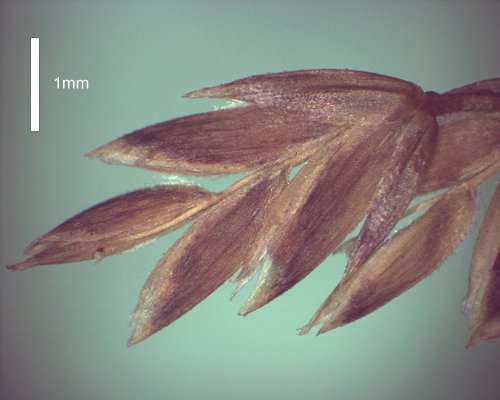Poa hiemata
Vickery. Contr. New South Wales Natl Herb. 4: 230, t. IX, 3 (1970).
Classification. (GPWG 2001) : Subfamily Pooideae. Tribe Poeae.
Type of Basionym or
Protologue Information: Australia: New South Wales: Mt. Kosciusko: 5000–7000
ft: Feb 1893, R. Helms (HT: NSW 39172).
Key references
(books and floras): [2002] D.Sharp & B.K.Simon, AusGrass, Grasses of
Australia, [2008] S.W.L.Jacobs, R.D.B.Walley & D.J.B.Wheeler, Grasses
of New South Wales (351), [2009] A.Wilson (ed.). Flora of Australia,
Vol 44A. Poaceae 2 (324).
Illustrations:
[2008] S.W.L.Jacobs, R.D.B.Whalley & D.J.B.Wheeler, Grasses of New South
Wales, 4th edn (351).
Habit.
Perennial. Rhizomes present, elongated. Culms erect or geniculately ascending,
stature slender to delicate, 15–60 cm tall, 2 -noded. Mid-culm nodes glabrous.
Lateral branches simple. Leaves mostly basal. Leaf-sheaths smooth, glabrous on
surface. Ligule a fringed membrane, a ciliolate membrane, 0.2–0.5 mm long,
abaxially glabrous or abaxially scaberulous, truncate. Leaf-blades conduplicate
or involute, (5–)7–15(–25) cm long, 0.4–2 mm wide. Leaf-blade surface scabrous,
glabrous.
Inflorescence.
Inflorescence compound, a panicle. Panicle pyramidal, 5–12 cm long.
Spikelets.
Spikelets pedicelled. Fertile spikelets many flowered, with at least 2 fertile
florets (3–5), comprising 3–5 fertile floret(s), with diminished florets at the
apex, ovate, laterally compressed, 3.5–8 mm long.
Glumes. Glumes
similar. Lower glume oblong, membranous, keeled, 1-keeled, 3 -nerved. Upper
glume oblong, 2.2–2.4 mm long, membranous, keeled, 1-keeled, 3 -nerved.
Florets.
Fertile lemma (2–)2.6–2.8(–3.5) mm long, keeled, 5 -nerved. Lemma surface
indumented. Lodicules present. Anthers 3.
Continental
Distribution: Australasia.
Australian
Distribution: New South Wales, Victoria, Tasmania.
New South Wales:
Southern Tablelands. Victoria: Wilsons Promontory, Snowfields. Tasmania:
Central Highlands, Ben Lomond.
Notes. Endemic.
S from the Brindabella Ra. Alpine and subalpine heath and grasslands above 1500
m. Flowers Jan.-Feb. Fruits Feb.-Mar.




